By Matthew B. Harrison
TALKERS, VP/Associate Publisher
Harrison Media Law, Senior Partner
Goodphone Communications, Executive Producer
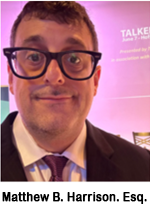 When Georgia-based nationally syndicated radio personality, and Second Amendment advocate Mark Walters (longtime host of “Armed American Radio”) learned that ChatGPT had falsely claimed he was involved in a criminal embezzlement scheme, he did what few in the media world have dared to do. Walters stood up when others were silent, and took on an incredibly powerful tech company, one of the biggest in the world, in a court of law.
When Georgia-based nationally syndicated radio personality, and Second Amendment advocate Mark Walters (longtime host of “Armed American Radio”) learned that ChatGPT had falsely claimed he was involved in a criminal embezzlement scheme, he did what few in the media world have dared to do. Walters stood up when others were silent, and took on an incredibly powerful tech company, one of the biggest in the world, in a court of law.
Taking the Fight to Big Tech
Walters, by filing suit against OpenAI, the creator of ChatGPT, become the first person in the United States to test the boundaries of defamation law in the age of generative artificial intelligence.
His case was not simply about clearing his name. It was about drawing a line. Can artificial intelligence generate and distribute false and damaging information about a real person without any legal accountability?
While the court ultimately ruled in OpenAI’s favor on specific legal procedure concerns, the impact of this case is far from finished. Walters’ lawsuit broke new ground in several important ways:
— It was the first known defamation lawsuit filed against an AI developer based on content generated by an AI system.
— It brought into the open critical questions about responsibility, accuracy, and liability when AI systems are used to produce statements that sound human but carry no editorial oversight.
— It continued to add fuel to the conversation of the effectiveness of “use at your own risk” disclaimers when there is real world reputational damage hanging in the balance.
Implications for the Radio and Podcasting Community
For those spoken-word creators, regardless of platform on terrestrial, satellite, or the open internet, this case is a wake-up call, your canary in a coal mine. Many shows rely on AI tools for research, summaries, voice generation, or even show scripts. But what happens when those tools get it wrong? (Other than being embarrassed, and in some cases fined or terminated) And worse, what happens when those errors affect real people?
The legal system, as has been often written about, is still playing catch-up. Although the court ruled that the fabricated ChatGPT statement lacked the necessary elements of defamation under Georgia law, including provable harm and demonstrable fault, the decision highlighted how unprepared current frameworks are for this fast-moving, voice-driven digital landscape.
Where the Industry Goes from Here
Walters’ experience points to the urgent need for new protection and clearer guidelines:
— Creators deserve assurance that the tools they use are built with accountability in mind. This would extend to copyright infringement and to defamation.
— Developers must be more transparent about how their systems operate and the risks they create. This would identify bias and attempt to counteract it.
— Policymakers need to bring clarity to who bears responsibility when software, not a person, becomes the speaker.
A Case That Signals a Larger Reckoning
Mark Walters may not have won this round in court, but his decision to take on a tech giant helped illuminate how quickly generative AI can create legal, ethical, and reputational risks for anyone with a public presence. For those of us working in media, especially in formats built on trust, voice, and credibility, his case should not be ignored.
“This wasn’t about money. This was about the truth,” Walters tells TALKERS. “If we don’t draw a line now, there may not be one left to draw.”
To listen to a longform interview with Mark Walters conducted by TALKERS publisher Michael Harrison, please click here
Media attorney, Matthew B. Harrison is VP/Associate Publisher at TALKERS; Senior Partner at Harrison Media Law; and Executive Producer at Goodphone Communications. He is available for private consultation and media industry contract representation. He can be reached by phone at 724-484-3529 or email at matthew@harrisonmedialaw.com. He teaches “Legal Issues in Digital Media” and serves as a regular contributor to industry discussions on fair use, AI, and free expression.
Share this with your network
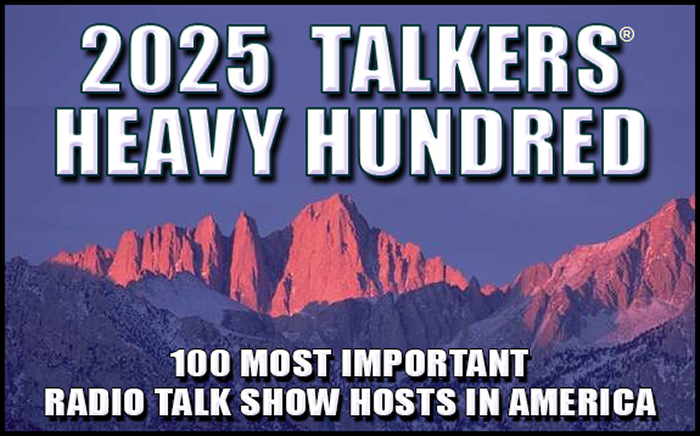




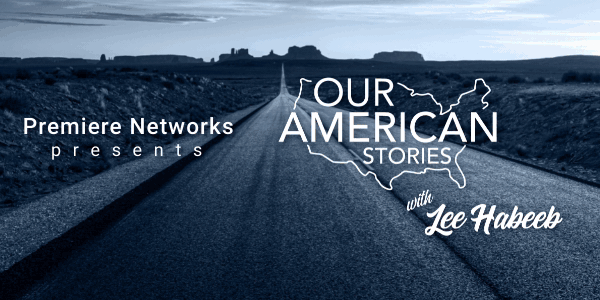
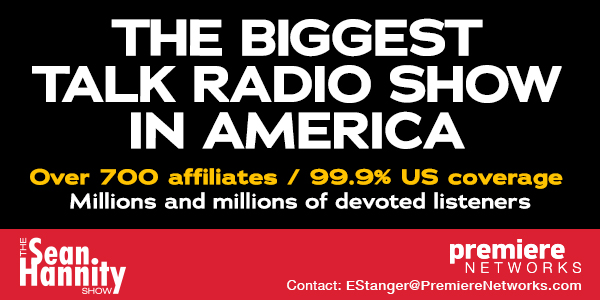
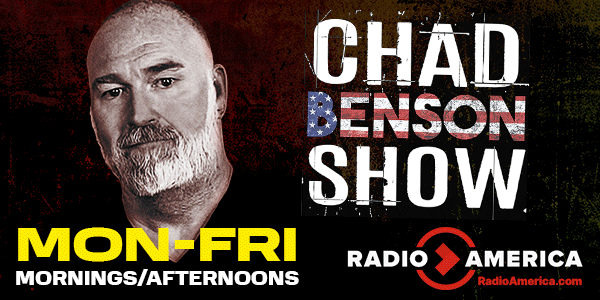
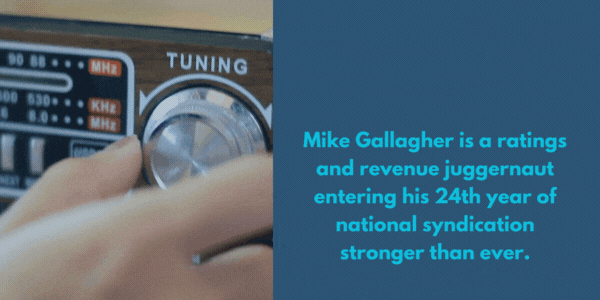

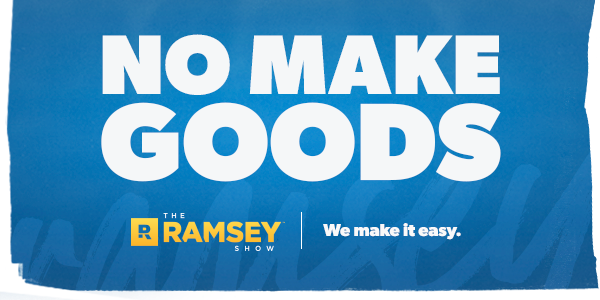
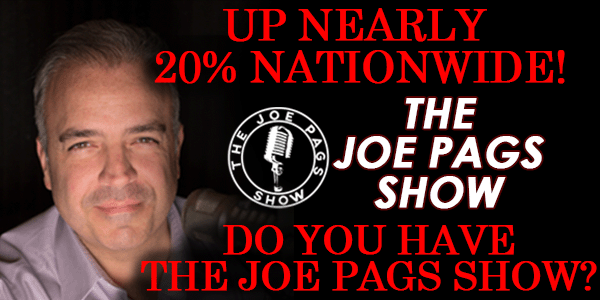
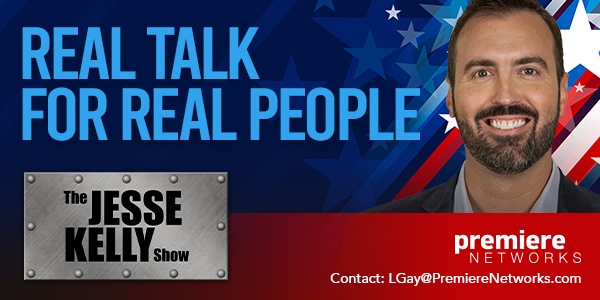
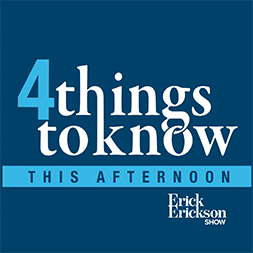 fans their “essential end-of-day rundown of the four most important stories breaking while you were busy.” The Erickson show says “4 Things to Know This Afternoon” delivers “smart analysis of the four biggest headlines shaping the nation and the world in less than ten minutes. From national security to culture, economics to politics, Erick distills the noise into clarity – cutting through the spin with conviction, context, and a clear-eyed view of where things stand.”
fans their “essential end-of-day rundown of the four most important stories breaking while you were busy.” The Erickson show says “4 Things to Know This Afternoon” delivers “smart analysis of the four biggest headlines shaping the nation and the world in less than ten minutes. From national security to culture, economics to politics, Erick distills the noise into clarity – cutting through the spin with conviction, context, and a clear-eyed view of where things stand.”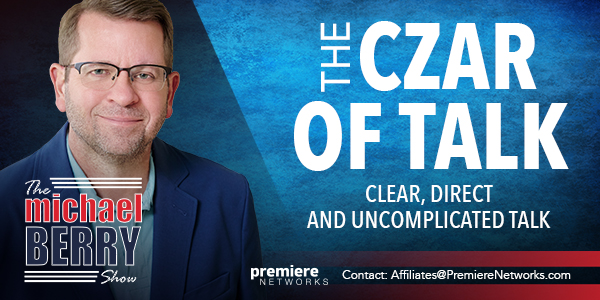
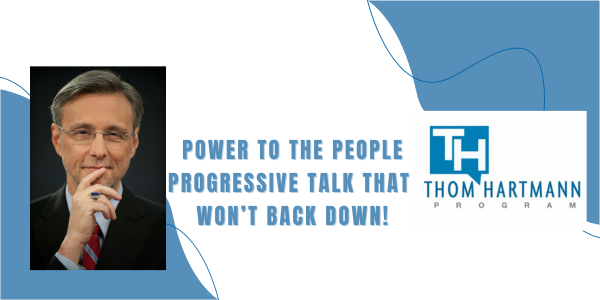
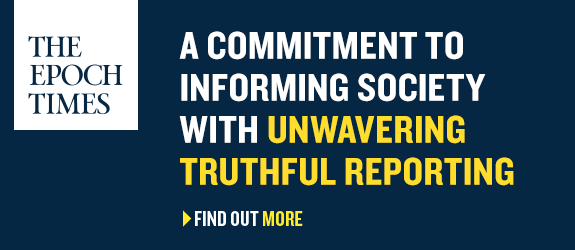
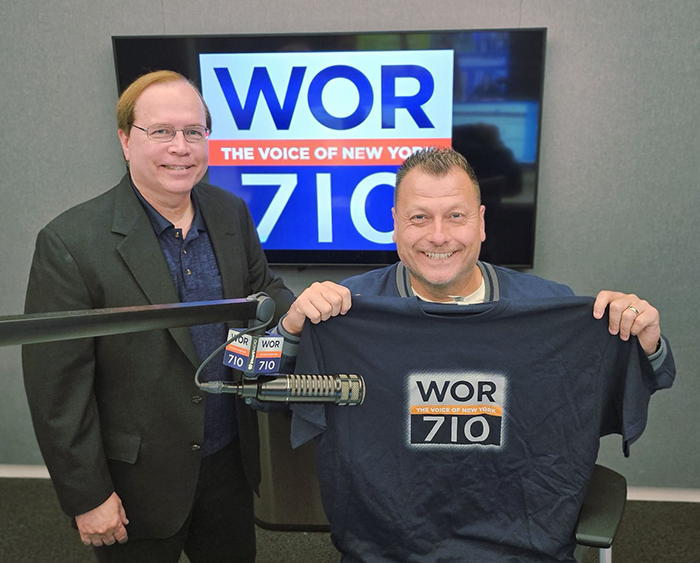



 expected to anchor special news or breaking news coverage when it happens. This position becomes an overall ambassador for our brand, and is expected to also work at special events, and alongside our sales staff to promote the station to Northwest Newsradio clients and endorse their businesses if requested.”
expected to anchor special news or breaking news coverage when it happens. This position becomes an overall ambassador for our brand, and is expected to also work at special events, and alongside our sales staff to promote the station to Northwest Newsradio clients and endorse their businesses if requested.” 

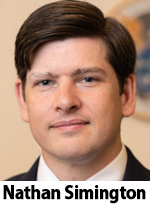 end of this week. It has been the greatest honor of my professional life to serve the American people as a Commissioner. I am deeply honored to have been entrusted with this responsibility by President Donald J. Trump during his first term.
end of this week. It has been the greatest honor of my professional life to serve the American people as a Commissioner. I am deeply honored to have been entrusted with this responsibility by President Donald J. Trump during his first term. 
 and regional news director position with iHeartMedia’s KOA, Denver. She says, “iHeartMedia has graciously agreed to keep me part time, so you will still hear me anchor a newscast here or there… I have been honored to talk and write my way through 35 years at KOA.”
and regional news director position with iHeartMedia’s KOA, Denver. She says, “iHeartMedia has graciously agreed to keep me part time, so you will still hear me anchor a newscast here or there… I have been honored to talk and write my way through 35 years at KOA.” 
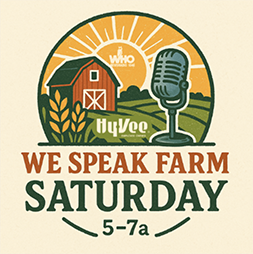 Nathan Fischer, and fellow farm department contributors are teaming up to produce the debut show this Saturday (6/7). WHO adds, “‘We Speak Farm Saturday’ builds upon all that’s delivered throughout the week during ‘The Big Show’ with a Market Recap, a weekly ‘Agriculture USA’ segment from the USDA, insightful conversations on Iowa farming, agronomy and food, and will also cover topics such as gardening, farmers markets, rodeos and county fairs.” WHO program director Cole Blair comments, “We are always looking to deliver more for the hard-working farmers and all those involved in Iowa’s agriculture industry at WHO, so we’re proud to expand our Ag programming with the launch of ‘We Speak Farm Saturday.’ When farmers and Ag industry workers get in the truck, tractor or workplace on Saturday it’s only right we’re there with them, too.”
Nathan Fischer, and fellow farm department contributors are teaming up to produce the debut show this Saturday (6/7). WHO adds, “‘We Speak Farm Saturday’ builds upon all that’s delivered throughout the week during ‘The Big Show’ with a Market Recap, a weekly ‘Agriculture USA’ segment from the USDA, insightful conversations on Iowa farming, agronomy and food, and will also cover topics such as gardening, farmers markets, rodeos and county fairs.” WHO program director Cole Blair comments, “We are always looking to deliver more for the hard-working farmers and all those involved in Iowa’s agriculture industry at WHO, so we’re proud to expand our Ag programming with the launch of ‘We Speak Farm Saturday.’ When farmers and Ag industry workers get in the truck, tractor or workplace on Saturday it’s only right we’re there with them, too.”
 #3. Radio-related podcasts of note include Cumulus Podcast Network’s “Shawn Ryan Show” steady at #6, iHeartPodcasts’ “On Purpose with Jay Shetty” rising two spots to #9, and Silverloch’s “VINCE” falling two places to #20.
#3. Radio-related podcasts of note include Cumulus Podcast Network’s “Shawn Ryan Show” steady at #6, iHeartPodcasts’ “On Purpose with Jay Shetty” rising two spots to #9, and Silverloch’s “VINCE” falling two places to #20. 

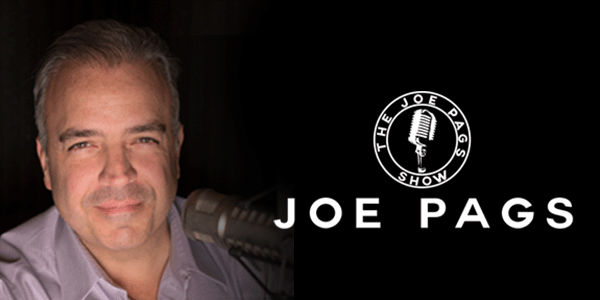
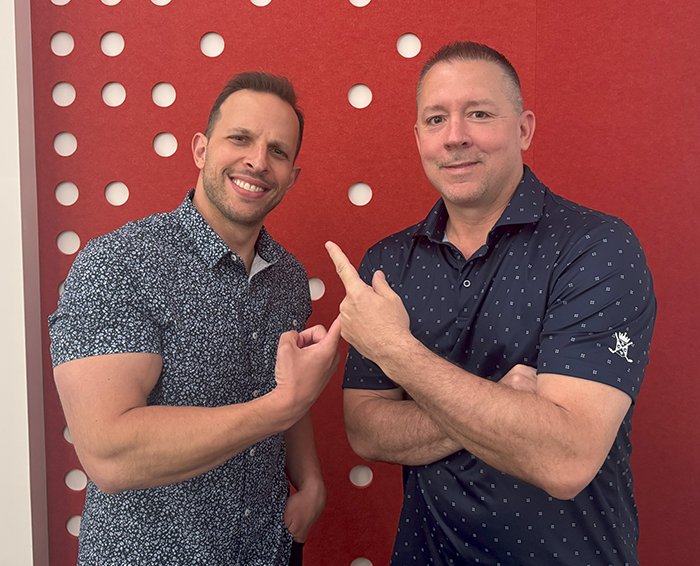

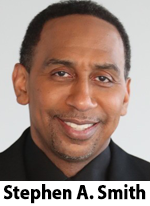 commentary on “everything beyond the world of sports – from politics and social issues to entertainment news, pop culture trends and more.” Smith comments, “To say that I’m excited would be an understatement. I’ve been on Mad Dog before, had the time of my life. So, I’m loving the fact that I get to reunite with my guy, Mad Dog, on his turf. That in itself is a beautiful thing. But to then add a weekly show where I have a potent platform to discuss riveting subjects in the world of pop culture, politics and social commentary… let’s just say it doesn’t get any better than that. September can’t come soon enough. It’s been a long time since I’ve been in radio… especially going back and forth with the callers. Can’t wait to get re-started. Buckle Up! I’m coming!” Stephen A. Smith is a featured commentator and executive producer on ESPN’s “First Take.” Since 2021 he has been an analyst on “NBA Countdown,” ESPN and ABC’s longstanding NBA pregame show.
commentary on “everything beyond the world of sports – from politics and social issues to entertainment news, pop culture trends and more.” Smith comments, “To say that I’m excited would be an understatement. I’ve been on Mad Dog before, had the time of my life. So, I’m loving the fact that I get to reunite with my guy, Mad Dog, on his turf. That in itself is a beautiful thing. But to then add a weekly show where I have a potent platform to discuss riveting subjects in the world of pop culture, politics and social commentary… let’s just say it doesn’t get any better than that. September can’t come soon enough. It’s been a long time since I’ve been in radio… especially going back and forth with the callers. Can’t wait to get re-started. Buckle Up! I’m coming!” Stephen A. Smith is a featured commentator and executive producer on ESPN’s “First Take.” Since 2021 he has been an analyst on “NBA Countdown,” ESPN and ABC’s longstanding NBA pregame show.
 and outcomes that matter for its partners.” Audacy chief business officer Chris Oliviero says, “Our growing digital portfolio will benefit from this new organizational structure, setting Audacy up perfectly for further success. With Michael at the helm, we will lean into his expertise, experience and creativity to further energize our digital sales, unlocking new opportunities and creating better workflows and results for our local and national teams. We’re excited about what this means for our client partners and colleagues.” Biemolt most recently served as executive vice president at Audacy where he was responsible for leading digital transformation efforts and helping grow national sales capabilities.
and outcomes that matter for its partners.” Audacy chief business officer Chris Oliviero says, “Our growing digital portfolio will benefit from this new organizational structure, setting Audacy up perfectly for further success. With Michael at the helm, we will lean into his expertise, experience and creativity to further energize our digital sales, unlocking new opportunities and creating better workflows and results for our local and national teams. We’re excited about what this means for our client partners and colleagues.” Biemolt most recently served as executive vice president at Audacy where he was responsible for leading digital transformation efforts and helping grow national sales capabilities.


 When Georgia-based nationally syndicated radio personality, and Second Amendment advocate Mark Walters (longtime host of “Armed American Radio”) learned that ChatGPT had falsely claimed he was involved in a criminal embezzlement scheme, he did what few in the media world have dared to do. Walters stood up when others were silent, and took on an incredibly powerful tech company, one of the biggest in the world, in a court of law.
When Georgia-based nationally syndicated radio personality, and Second Amendment advocate Mark Walters (longtime host of “Armed American Radio”) learned that ChatGPT had falsely claimed he was involved in a criminal embezzlement scheme, he did what few in the media world have dared to do. Walters stood up when others were silent, and took on an incredibly powerful tech company, one of the biggest in the world, in a court of law.
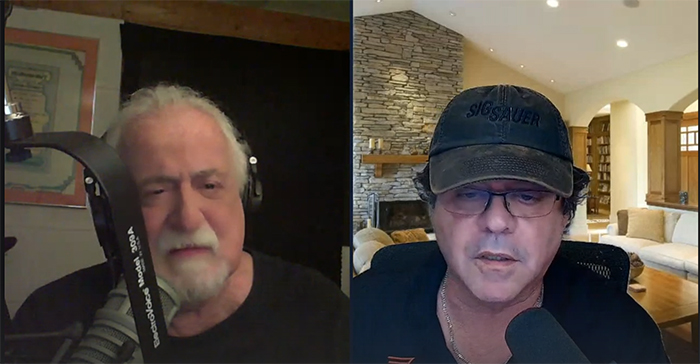

 served as a fill-in host for “The Rush Limbaugh Show.” WMAL program director Bill Hess says, “We’re thrilled to have Derek’s fresh voice and perspective on our fulltime lineup. His width of interests will make for a fun and informative afternoon program as we wrestle this news cycle each day.” Hunter comments, “I couldn’t be more excited – this is a homecoming for me. Returning to where I first hosted is a great feeling. I’ve been fortunate to fill in across the lineup – from ‘O’Connor and Company’ to Chris Plante, and even for Rush Limbaugh. To now have a permanent home here is incredibly special. I want to thank Bill Hess, Jeff Boden, and all of Cumulus for this amazing opportunity.”
served as a fill-in host for “The Rush Limbaugh Show.” WMAL program director Bill Hess says, “We’re thrilled to have Derek’s fresh voice and perspective on our fulltime lineup. His width of interests will make for a fun and informative afternoon program as we wrestle this news cycle each day.” Hunter comments, “I couldn’t be more excited – this is a homecoming for me. Returning to where I first hosted is a great feeling. I’ve been fortunate to fill in across the lineup – from ‘O’Connor and Company’ to Chris Plante, and even for Rush Limbaugh. To now have a permanent home here is incredibly special. I want to thank Bill Hess, Jeff Boden, and all of Cumulus for this amazing opportunity.”
 hosted by Sam Madonia and Greg Halbleib moves from sister sports talk station WFMB-AM/W222CG to WMAY-AM/FM. Current WMAY morning personality Patrick Pfingsten moves to the 3:00 pm to 6:00 pm daypart as host of “PM Springfield.” Back over at Sports Radio 92.3 FM/1450 AM, the station debuts a new morning show called, “The Morning Huddle with Darin Pritchett.” Woodward market manager Kevin O’ Dea says, “We’ve heard our listeners loud and clear. These changes allow us to better serve our audiences with the content they love, while strengthening our ties to the community.”
hosted by Sam Madonia and Greg Halbleib moves from sister sports talk station WFMB-AM/W222CG to WMAY-AM/FM. Current WMAY morning personality Patrick Pfingsten moves to the 3:00 pm to 6:00 pm daypart as host of “PM Springfield.” Back over at Sports Radio 92.3 FM/1450 AM, the station debuts a new morning show called, “The Morning Huddle with Darin Pritchett.” Woodward market manager Kevin O’ Dea says, “We’ve heard our listeners loud and clear. These changes allow us to better serve our audiences with the content they love, while strengthening our ties to the community.” states, “Steve has shared his entire broadcasting career with the WGN Radio audience and built respect, trust, and friendships along the way. It’s a special relationship and four decades deserves recognition.” Bertrand started at WGN Radio as an intern and was hired full-time in 1985. He has been in the news anchor chair since 1992. Bertrand reflects, “Growing up in a small town, I always had my eye on moving to the big city. Never during those years of daydreaming would I have imagined the career I’ve had at WGN Radio. I have worked with, and still do work with, some of the best in radio. I’m so grateful. And lucky. Back in the day, many people might have considered my fantasy a pipe dream. But, it turns out, dreams can come true.”
states, “Steve has shared his entire broadcasting career with the WGN Radio audience and built respect, trust, and friendships along the way. It’s a special relationship and four decades deserves recognition.” Bertrand started at WGN Radio as an intern and was hired full-time in 1985. He has been in the news anchor chair since 1992. Bertrand reflects, “Growing up in a small town, I always had my eye on moving to the big city. Never during those years of daydreaming would I have imagined the career I’ve had at WGN Radio. I have worked with, and still do work with, some of the best in radio. I’m so grateful. And lucky. Back in the day, many people might have considered my fantasy a pipe dream. But, it turns out, dreams can come true.” study of 303 media agencies and marketers conducted in August 2024 found the perceived combined audience share of Pandora/Spotify is 43%, much greater than the perceived share of AM/FM radio (27%). In reality, “According to the Q1 2025 Share of Ear, AM/FM radio’s persons 18+ share of ad-supported audio (68%) is 14 times larger than ad-supported Pandora (5%) and ad-supported Spotify (5%).” The data also reveals that podcasts take the second-place spot with a 20% share. Ad-supported Pandora (5%), ad-supported Spotify (5%), and ad-supported SiriusXM (3%) lag distantly.
study of 303 media agencies and marketers conducted in August 2024 found the perceived combined audience share of Pandora/Spotify is 43%, much greater than the perceived share of AM/FM radio (27%). In reality, “According to the Q1 2025 Share of Ear, AM/FM radio’s persons 18+ share of ad-supported audio (68%) is 14 times larger than ad-supported Pandora (5%) and ad-supported Spotify (5%).” The data also reveals that podcasts take the second-place spot with a 20% share. Ad-supported Pandora (5%), ad-supported Spotify (5%), and ad-supported SiriusXM (3%) lag distantly.  Morano. Lionel comments, “I’m honored beyond words to be back at WABC – where it all began, my alma mater, the greatest talk radio station in the world. Legendary, historic, storied, unmatched in its legacy. This isn’t just radio, it’s home. It’s the gold standard, the birthplace of giants. And now, I’m back where I belong.”
Morano. Lionel comments, “I’m honored beyond words to be back at WABC – where it all began, my alma mater, the greatest talk radio station in the world. Legendary, historic, storied, unmatched in its legacy. This isn’t just radio, it’s home. It’s the gold standard, the birthplace of giants. And now, I’m back where I belong.”